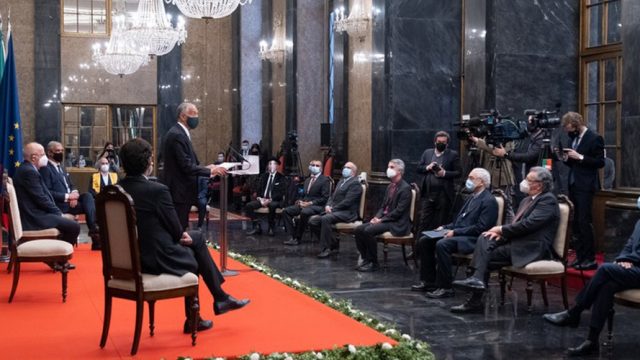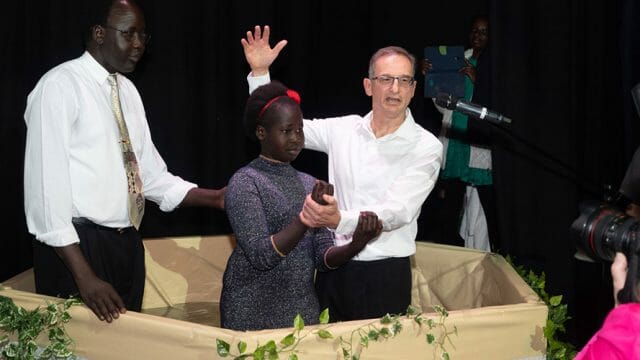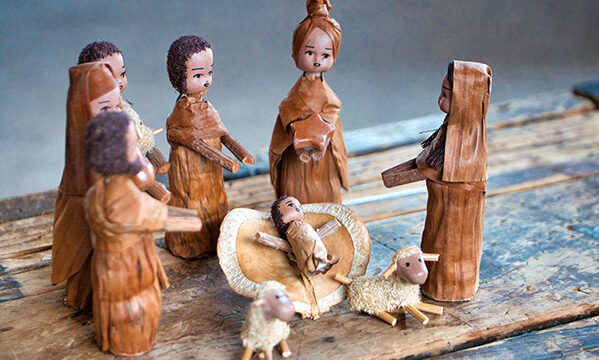I notice that some church members do not participate in the ordinances of foot washing and the Lord’s Supper. What can we do […]

I notice that some church members do not participate in the ordinances of foot washing and the Lord’s Supper. What can we do to change this practice?
There are probably several reasons for not participating in the Lord’s ordinances. But one of them is a lack of understanding of their importance for the Christian life.
- Foot-washing Ceremony:
When Jesus washed the feet of His disciples, He was actively displaying the very purpose of His ministry: He came not to be served but to serve. His life had always been free from selfish concerns, consecrated to disinterested service to others. The ceremony was also a call to His disciples to set aside selfishness and become like Him.
During this ceremony Christ is particularly present through the Spirit as His love is remembered by His people. Surprisingly, according to Jesus, those who participate in the foot-washing ceremony had already been cleansed, and they need only to have their feet washed (John 13:10; 15:3). Theologically speaking, they have been covered by the imputed righteousness of Christ, and during the ceremony this initial experience of the Christian life is extended to sins committed after being baptized. This is when the Spirit speaks tenderly to human hearts and invites us to be contrite and repent with the absolute assurance of the forgiveness of our sins. This important service strengthens the spiritual and moral life of believers and unites them in service to each other and to their Savior.
- Lord’s Supper:
This is the memorial of Christ’s suffering and sacrificial death. The lives of believers may be crowded by daily concerns, leaving hardly any time for considering their spiritual life. Jesus refused to be forgotten. He left us an ordinance that, if properly followed, will keep fresh in our minds the immensity of His eternal sacrifice and will grace our lives with gratitude. He should never be forgotten, because without His redemptive sacrifice there would be no future for the human race.
This explains the association of the ceremony with the second coming of Christ. From the heights of the cross we look forward to a most glorious future. For now, by remembering Him, the efficacy of the sacrifice is manifested once more in the heart, imbuing it with the grace and love of Christ. By dwelling on Calvary, not on the imperfections of ourselves or others, the sacred emotions of the heart are awakened and our communion with Christ is deepened. We must spend more time contemplating Christ’s unfathomable work of atonement, and the Lord’s Supper is one of the occasions when this is done personally and collectively in the unity of faith and love.
- Ordinances:
Participation in the sacred ordinances of foot washing and the Lord’s Supper is not optional for believers. Concerning the bread and the cup Jesus was very clear: “Do this in remembrance of me” (1 Cor. 11:24, 25). With respect to foot washing He said, “I have given you an example that you should do as I have done to you” (John 13:15). This command requires us to imitate His example. Not participating in the ordinance would show unwillingness to enjoy eternal fellowship with Christ (verse 8).
This is a serious matter! The Sabbath is a memorial of Creation established by the divine Exemplar, and we joyfully observe it. The same applies for the ordinances. Those of us who are still sinners should participate in the foot-washing ceremony, then sit at the table of the Lord to contemplate His grace and beauty.
Angel Manuel Rodríguez is retired after a career serving the church as a pastor, professor, and theologian.








